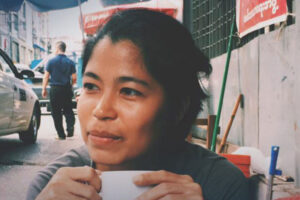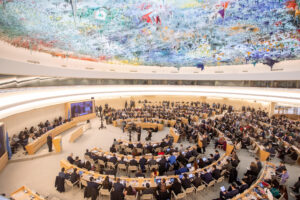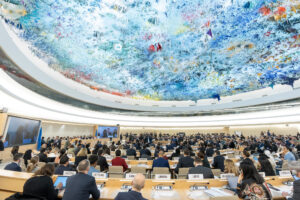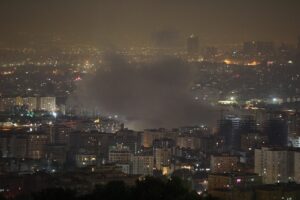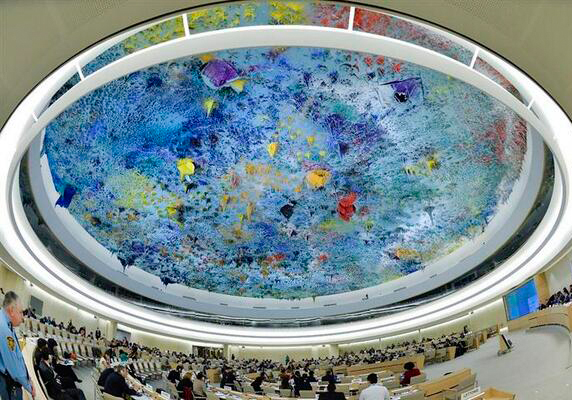
Jun 16, 2016 | Advocacy, Non-legal submissions
The ICJ today joined a statement delivered by the International Bar Association on indicators of independence of justice systems.The statement came during the interactive dialogue with the UN Special Rapporteur on the Independence of Judges and Lawyers.
It read as follows:
As international organisations of legal professionals, we endorse the recommendation made by the Special Rapporteur to develop a set of international indicators to assess the independence of justice systems.
The Special Rapporteur has previously stated: ‘No ideal justice system exists; rather, there are universal principles that must be respected in the structure and functioning of any judicial system, so that it can duly fulfil its purpose’. (Report of the Special Rapporteur on the independence of judges and lawyers, (2014) UN Doc A/69/294, para 92.)
Achieving Sustainable Development Goal 16 – that is, providing access to justice for all and building effective, accountable and inclusive institutions – will require respect for the universal principles of independence and impartiality of justice systems and the independence of the legal profession.
In 2015, the International Bar Association (IBA) and the International Commission of Jurists (ICJ) proposed two indicators under SDG16, regarding the independence of the judiciary and an independent and self-governing legal profession. The IBA is currently developing ‘indicia of independence’ that can be used to assess the state of independence of the legal profession in a given jurisdiction. The Commonwealth Lawyers Association (CLA) and the Commonwealth Magistrates’ and Judges’ Association (CMJA) continue to monitor judicial and legal independence through the Commonwealth Latimer House Working Group.
We therefore, Madam Special Rapporteur, fully support your endeavour to develop universal indicators that complete the UN Rule of Law Indicators, and build on the UN Basic Principles on the Independence of the Judiciary, the Basic Principles on the Role of Lawyers, and the Guidelines on the Role of Prosecutors.
We further call upon States to ensure that national targets and indicators duly align with international indicators and international principles.
Thank you, Mr President
The following organisations endorsed the statement:
- Avocats Sans Frontières -Suisse
- Commonwealth Magistrates’ and Judges’ Association
- Commonwealth Lawyers Association
- International Bar Association’s Human Rights Institute
- International Commission of Jurists
- Judges for Judges
- Lawyers for Lawyers
- Southern Africa Litigation Centre
The statement can be downloaded in PDF format here: HRC 32- Joint Oral Statement Item 3 SR IJL_FINAL
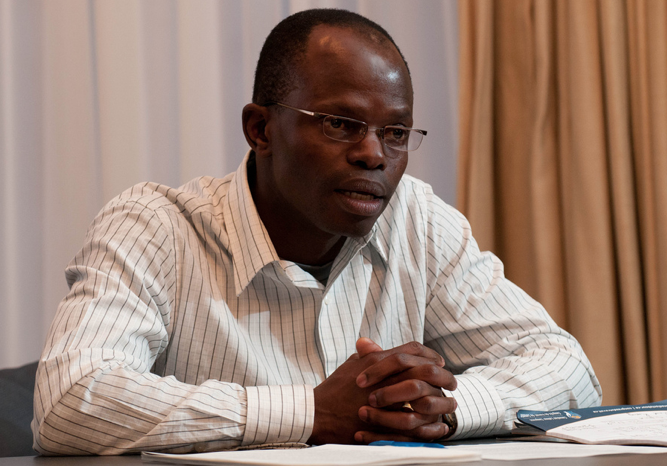
Jun 16, 2016 | Advocacy, Non-legal submissions
The ICJ today delivered a statement at the UN Human Rights Council, on judicial accountability, and attacks on lawyers. The ICJ made the statement on behalf of a group of eight NGOs, including professional organisations of judges and lawyers.
The statement, read out by Swaziland lawyer Thulani Maseko during the Interactive Dialogue with the UN Special Rapporteur on the Independence of Judges and Lawyers, read as follows:
Madame Special Rapporteur on the Independence of Judges and Lawyers,
Our organizations strongly support your mandate. An independent judiciary and legal profession are essential to the rule of law and to the effective protection of human rights.
Independence and impartiality of the judiciary require integrity of individual judges and judicial institutions. Accordingly, there must be accountability for judicial corruption and judicial involvement in human rights violations.
Accountability mechanisms must themselves be independent, fair and transparent, in order to ensure they do not undermine the independence of the judiciary and that victims and the broader population see them as credible and accessible.
We note in this regard the International Commission of Jurists’ newly published Practitioners’ Guide on Judicial Accountability, and the International Bar Association’s recent report on Judicial systems and Corruption.
We also must highlight the growing problem of repression of lawyers who act in cases perceived to have human rights or political aspects, including through: harassment, suspension or disbarment; arrest, detention, unfair trial, and arbitrary imprisonment; torture or other cruel, inhuman or degrading treatment, enforced disappearance, or even unlawful killings.
This is inconsistent with the UN Basic Principles on the Role of Lawyers and incompatible with the rule of law. It violates the rights of individual lawyers and undermines the independence of the legal profession. It denies the rights of the people the lawyers are trying to protect.
Among current examples, the scale and depth of repressive measures against lawyers and HRDs in China is particularly stark, but similar concerns arise in, for instance, Egypt, Turkey, Thailand, Azerbaijan, Malaysia, Tajikistan, and Vietnam. (I myself was arbitrarily imprisoned in my own country Swaziland, for publicly expressing my opinions about judicial misconduct.)
We accordingly will urge lawyers, legal professional associations and others around the world to respond to the questionnaire you have prepared for your upcoming General Assembly report on the legal profession.
I thank you.
The following organizations joined or otherwise supported the statement:
The statement may be downloaded in PDF format here: HRC32-OralStatement-JudicialAccountabilityLawyers-2016
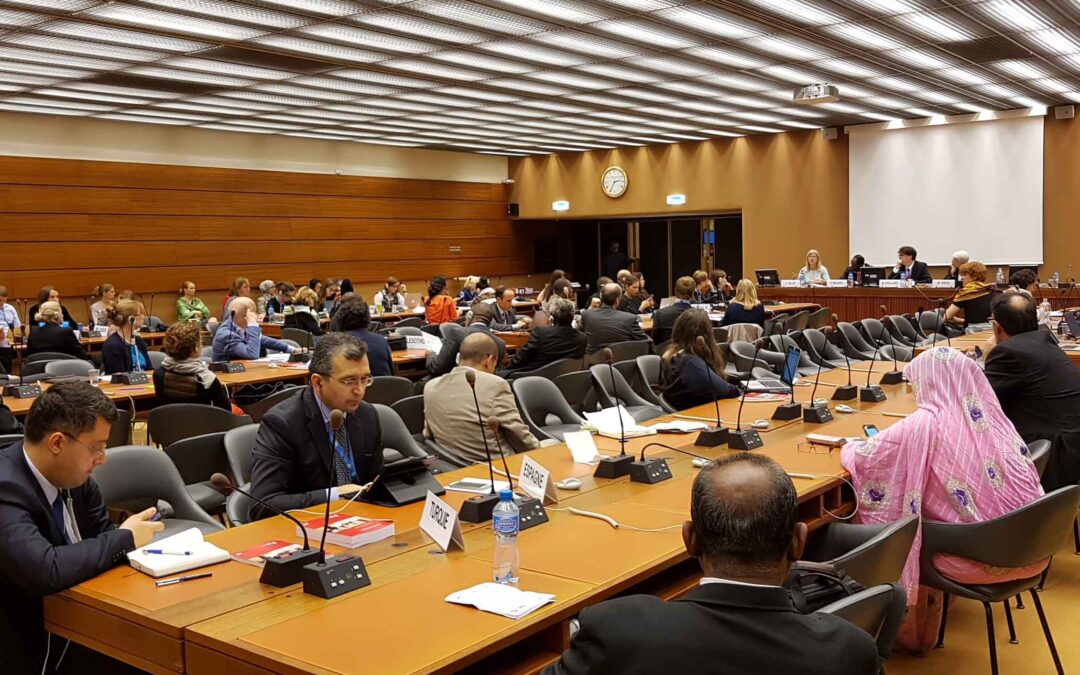
Jun 13, 2016 | Events
Who judges the judges?
Accountability for judicial corruption and judicial complicity
Side Event Tuesday 14 June 2016, 14:00 – 16:00
Room XXIII, Palais des Nations, Geneva.
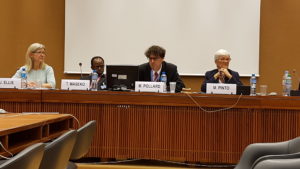
The International Commission of Jurists (ICJ) and the International Bar Association (IBA) organised a side event to the 32nd session of the Human Rights Council, on the topic of accountability for judicial corruption and judicial involvement in human rights violations.
The well-attended event considered the need for judicial accountability, and different options for effective mechanisms and procedures of accountability. Recommendations for ordinary situations were complemented with reflections on circumstances of transitions where the judiciary have been deeply implicated in the violations of the previous regime, as well as particular challenges in developing countries.
At the event the ICJ launched its new Practitioners’ Guide on Judicial Accountability, and the IBA presented the recent report of its Judicial Integrity Initiative on Judicial systems and Corruption. Print copies of both publications were distributed.
A panel discussion also featured the UN Special Rapporteur on the independence of judges and lawyers, as well as Thulani Maseko, a lawyer from Swaziland who was subjected to prolonged arbitrary detention and imprisonment by judges in Swaziland, for speaking publicly about judicial misconduct in the country.
Speakers:
- Mónica Pinto Special Rapporteur on the independence of judges and lawyers
- Thulani Maseko Lawyer, Swaziland
- Jane Ellis, Director, Legal & Policy Research Unit, International Bar Association
- Matt Pollard, Centre for the Independence of Judges & Lawyers, International Commission of Jurists
In addition to the ICJ and IBA, side event co-sponsors included:
- The Permanent Mission of Hungary to the UN
- Commonwealth Magistrates’ and Judges’ Association
- Commonwealth Lawyers Association
- Rechters voor Rechters (Judges for Judges), Netherlands
- International Legal Assistance Consortium
The ICJ Practitioners’ Guide on Judicial Accountability, and the research and consultations on which it is based, was made possible with the financial support of the Republic and Canton of Geneva and the Ministry of Foreign Affairs of Finland.
For more information, please contact Matt Pollard.
ICJ Practitioners’ Guide No. 13 on Judicial Accountability
The ICJ’s Practitioners’ Guide No. 13 on Judicial Accountability aims to help practitioners ensure accountability for serious judicial misconduct, such as corruption or complicity in human rights violations, while preserving the independence of the judiciary.
It focuses on international standards on accountability mechanisms and procedures, illustrated by practical examples. It addresses not only the accountability of individual judges, and the accountability of judiciary as an institution, but also State responsibility under international law, particularly in relation to harm caused to victims of violations by judges.
The Guide was greatly informed by discussions among eminent judges and lawyers from around the world, convened by the ICJ Centre for the Independence of Judges & Lawyers, in Tunisia in October 2015 , and in Geneva in December 2015.
Among the topics covered by the new ICJ Guide are:
- The obligation to ensure an independent, impartial and accountable judiciary.
- The forms of judicial accountability, including:
- Remedy and reparation for victims,
- The responsibility of the State,
- Removal from office, disciplinary sanctions, and other administrative measures,
- Criminal responsibility, and
- The right to the truth.
- The structure and elements of accountability bodies, such as:
- Review of decisions through appeal or judicial review,
- Judicial councils,
- The ordinary courts,
- Parliamentary procedures,
- Ad hoc tribunals,
- Anti-corruption bodies,
- Civil society monitoring and reporting,
- National human rights institutions,
- Professional associations,
- International accountability mechanisms.
- Procedural issues, including:
- Necessary powers for accountability mechanisms,
- Procedural rights of the judge,
- Procedural rights of complainants and victims,
- Publicity and transparency,
- Procedures for lifting judicial immunity,
- Temporary suspension during proceedings, and
- Selective enforcement for improper purposes.
- Mechanisms in exceptional circumstances, such as transitions from undemocratic or authoritarian regimes, including:
- Truth commissions,
- Vetting, and
- Mass removal and re-application.
- Particular challenges in relation to developing countries.
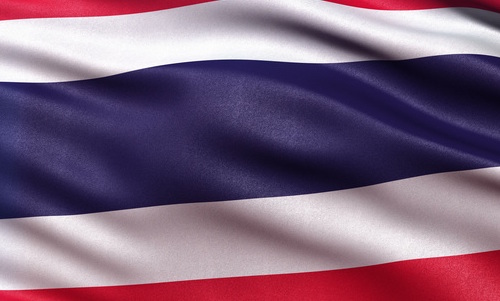
Jun 9, 2016 | News
The Thai military must immediately withdraw its abusive criminal complaints against three leading human rights defenders for raising allegations of torture in Thailand’s restive deep South, said the ICJ today.
“It is simply astonishing that the Thai government is lodging these complaints at a time when Thailand has just promised to adopt important anti-torture legislation and has publicly reaffirmed its commitment to protect human rights defenders,” said Sam Zarifi, ICJ Asia Regional Director.
“The military must immediately withdraw its complaints and instead ensure all allegations of torture and ill-treatment are promptly and effectively investigated in line with Thailand’s international legal obligations,” he added.
On 10 February 2016, three Thai organizations, the Cross Cultural Foundation (CrCF), Duay Jai Group (Hearty Support Group), and the Patani Human Rights Organization (HAP), issued a report that documented 54 cases of alleged torture and ill-treatment by the Thai authorities in the deep South since 2004.
On 17 May 2016, the Internal Security Operations Command (ISOC) Region 4, responsible for national security operations in the Southern Border Provinces, responded to the report by filing complaints of criminal defamation and violations of the Computer Crime Act B.E. 2550 (2007) against the report’s three co-editors, Somchai Homlaor and Pornpen Khongkachonkiet of CrCF, and Anchana Heemmina of Hearty Support Group.
Criminal defamation carries a maximum penalty of two years imprisonment and a fine of up to 200,000 Baht (USD $5,600). Violation of article 14(1) of the Computer Crime Act, carries a maximum penalty of five years imprisonment or a fine of up to 100,000 Baht (USD $2,800), or both.
It is the second time since 2014 that the Thai military has filed criminal defamation complaints against Pornpen Khongkachonkiet and Somchai Homlaor for raising allegations of torture in the deep South.
“The Thai military should also take heed of the recent decision of the Phuket Provincial Court in the Phuketwan case, which found that the Computer Crime Act was not intended to cover allegations of defamation,” said Zarifi.
On 1 September 2015, the Phuket Provincial Court acquitted two journalists of criminal defamation and violations of the Computer Crime Act after the Royal Thai Navy complained the journalists defamed it when, on 17 July 2013, the journalists reproduced a paragraph from a Pulitzer prize-winning Reuters article that alleged “Thai naval forces” were complicit in human trafficking.
The use of criminal defamation laws, carrying penalties of imprisonment, against human rights defenders reporting on alleged human violations, constitutes a violation of Thailand’s obligations under the International Covenant on Civil and Political Rights (ICCPR), to which it is a state party.
As affirmed in the UN Declaration on Human Rights Defenders, “Everyone has the right, individually and in association with others:… freely to publish, impart or disseminate to others views, information and knowledge on all human rights and fundamental freedoms.”
Background
On 17 December 2015, Thailand joined 127 other states at the UN General Assembly in adopting a UN Resolution on human rights defenders. The Resolution calls upon states to refrain from intimidation or reprisals against human rights defenders.
Last month, Thailand informed the Human Rights Council during its Universal Periodic Review that the Cabinet was considering a draft Act on Prevention and Suppression of Torture and Enforced Disappearance. It was reported that the Cabinet approved the draft law on 24 May 2016.
At the conclusion of the review, Thailand also adopted several recommendations to protect human rights defenders and investigate reported cases of intimidation, harassment and attacks against them.
The right to an effective remedy against torture and other ill-treatment and to have complaints promptly, fully and impartially investigated is guaranteed under international treaties to which Thailand is party, including the Convention against Torture and Other Cruel, Inhuman or Degrading Treatment or Punishment and the ICCPR.
Thailand has an obligation under both treaties to conduct such investigations where there are allegations of torture and ill-treatment and to bring to justice those responsible in fair criminal proceedings.
Thailand was criticized in May 2014 for its failure to address violations when the United Nations Committee Against Torture expressed its concern “at the numerous and consistent allegations of serious acts of reprisals and threats against human rights defenders, journalists, community leaders and their relatives, including verbal and physical attacks, enforced disappearances and extrajudicial killings, as well as by the lack of information provided on any investigations into such allegations.”
The Committee recommended that Thailand “should take all the necessary measures to: (a) put an immediate halt to harassment and attacks against human rights defenders, journalists and community leaders; and (b) systematically investigate all reported instances of intimidation, harassment and attacks with a view to prosecuting and punishing perpetrators, and guarantee effective remedies to victims and their families.”
Contact:
Sam Zarifi, Asia Regional Director, t: +66 80 781 9002; e: sam.zarifi(a)icj.org
Kingsley Abbott, Senior International Legal Adviser, t: +66 94 470 1345; e: kingsley.abbott(a)icj.org
Thailand-Retaliation HRDs-News-web stories-2016-ENG (full story in Thai, PDF)
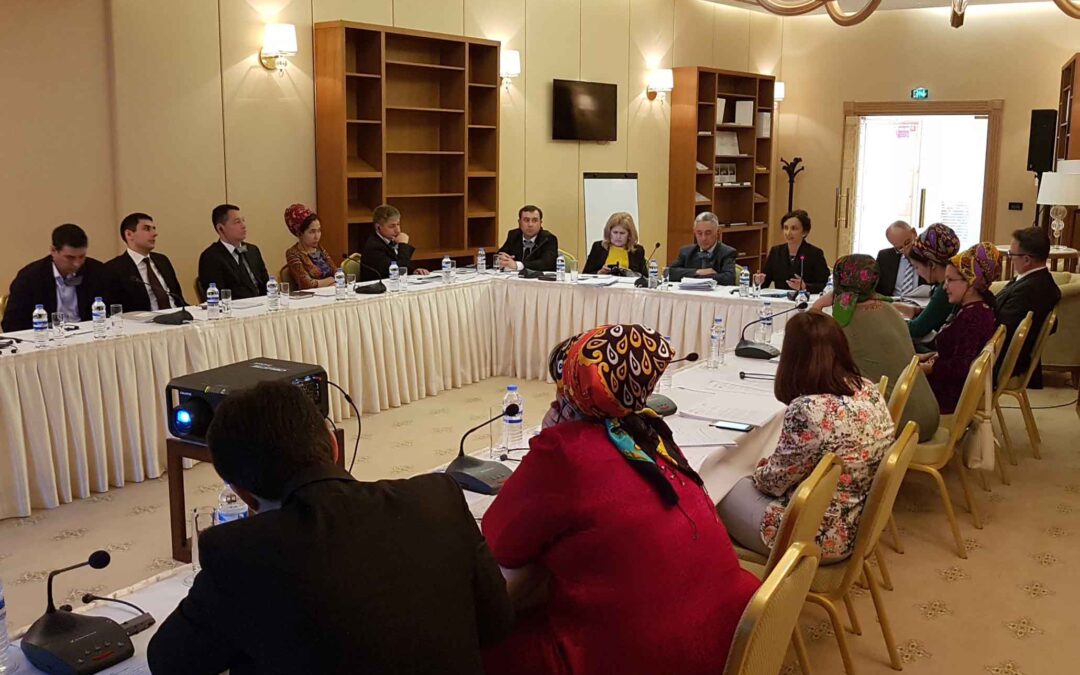
Jun 9, 2016 | Agendas, News
The ICJ today conducts a training seminar organized in Ashgabat on international human rights obligations and national courts.
The seminar will be attended by judges of the Supreme Court, representatives of the Prosecutor General’s office, the Ministry of Justice, lawyers as well as representatives of other institutions.
ICJ commissioners and staff members will participate event, including Justice Azhar Cachalia, Justice Radmila Dicic, Professor Andrew Clapham.
The seminar is organised in cooperation with the EU.
Contact
Róisín Pillay, Director, Europe Programme, roisin.pillay(a)icj.org
Temur Shakirov, Legal Adviser, Europe Programme, temur.shakirov(a)icj.org







